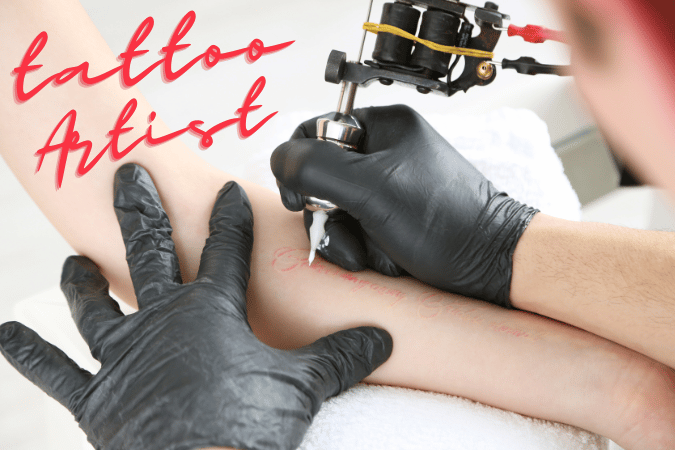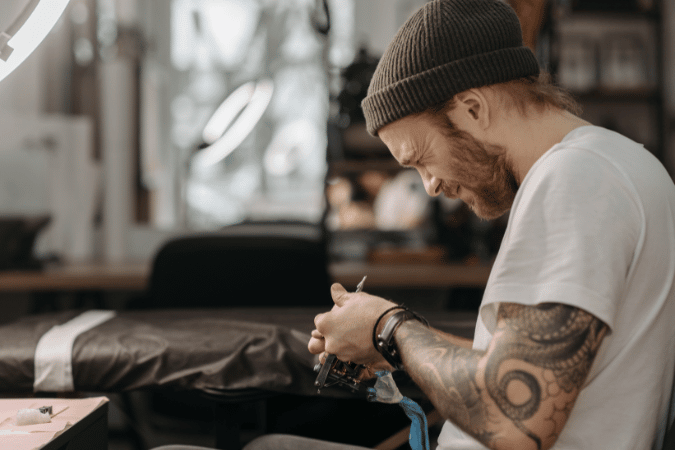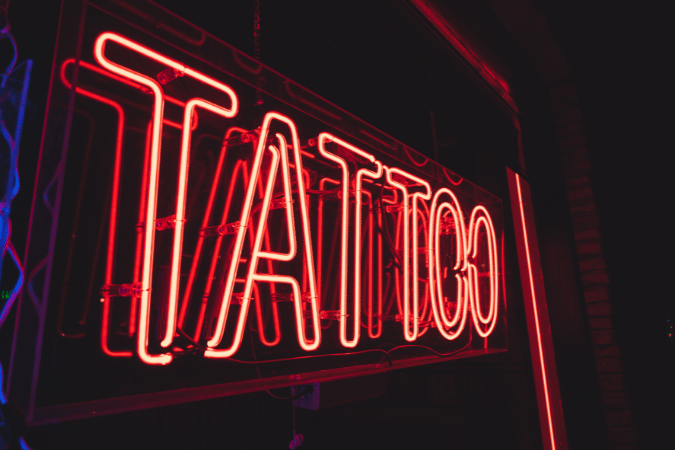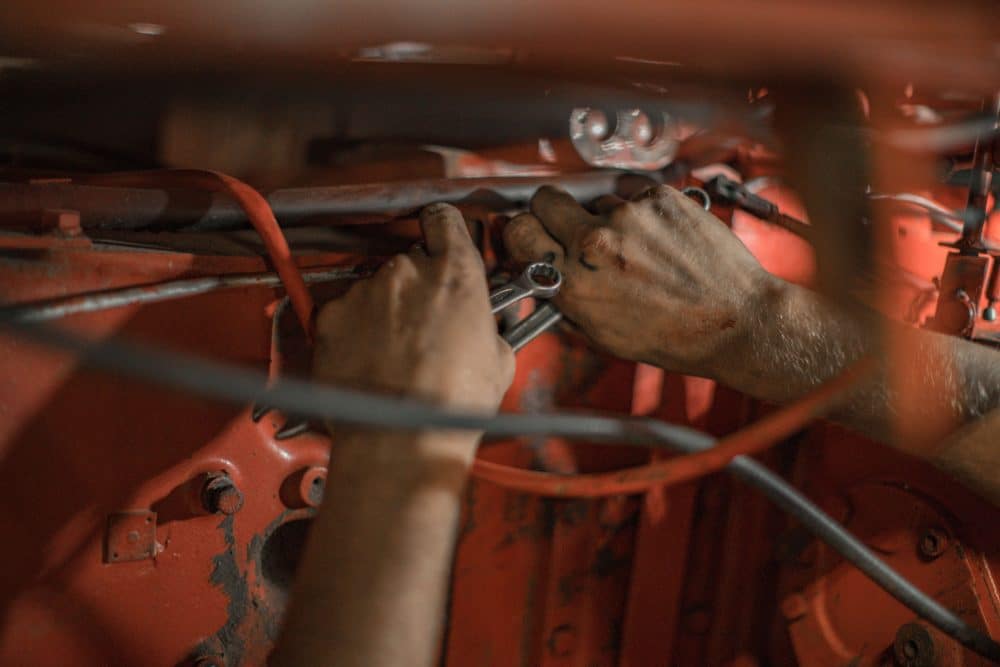
A Comprehensive Guide for Tattoo Artists

As tattoo artists become more widely accepted, tattooing is becoming increasingly popular. People want unique and exciting tattoos they can display proudly and feel good about. Therefore, it pays to seek a professional tattoo artist who understands what styles will work best for a particular design. A tattoo artist needs both skill and advanced knowledge of tattooing to provide clients with quality designs, as tattooing requires detailed attention to detail.
Professional tattoo artists understand each client’s tastes, desires, and expectations and ultimately help them bring their vision for a tattoo to life. With the right approach, care, and talent from an experienced professional tattoo artist, you can be confident you will enjoy the process from start to finish and take away a unique tattoo!
How to be a tattoo artist?

Becoming a tattoo artist can fulfill and reward, but it requires effort and dedication. There are several routes to becoming an accomplished tattoo artist. The most common is to seek and gain experience at a tattoo shop with a professional tattoo artist, learn the basics of tattooing, and gain valuable insight into the dynamic tattoo industry. After this apprenticeship, one is qualified to set up their tattoo studio as an independent tattooist or collaborate with another artist to build a portfolio of their artwork while garnering more experience.
With enough practice, you can even land gigs at larger shops worldwide, creating unique pieces for folks who will always appreciate your art. Of course, becoming a tattoo artist takes time, determination, and commitment. But if you invest in yourself and keep your skills sharp with consistent practice over time, you’ll eventually become the successful artist you deserve to be!
What are the Qualifications of a Tattoo Artist?
Becoming a tattoo artist requires dedication and attention to detail. Tattoo artists must have a high level of artistic ability to successfully create tattoo artwork that meets the standards of their tattoo shop, tattoo studio, or tattoo parlor. The desire to consistently produce successful tattoo art is just one qualification for tattoo artists. In addition, aspiring tattoo artists must know about safety protocols and cleaning procedures.
Tattoo artists should be familiar with anatomy, art theory, and various laws related to tattooing to provide an exceptional tattoo experience for their clients. To ensure they meet all the required qualifications of a tattoo artist, prospective tattooists must complete extended apprenticeship hours under a well-regarded tattoo artist before turning their career into a full-time endeavor.
The Requirements of a Tattoo Artist
Licensing Requirements

Most states require tattoo artists to get a license to practice their craft legally. Each state’s licensing requirements vary but include completing an approved apprenticeship program, passing written exams, and completing a certain amount of hours of tattooing experience. Many states require that tattoo artists get certification in blood-borne pathogens safety and disease prevention before being issued a license.
Education & Training
Besides licensing requirements, most employers prefer that applicants for tattoo artist positions have an education or training related to art or design. Therefore, formal classes or degrees from accredited institutions can be beneficial when applying for jobs or apprenticeships. It can also help show an understanding of color theory and artistic techniques to create high-quality tattoos with precision and accuracy.
Physical Ability
Tattooing requires physical skill because of the precision needed when working on small details like lines, shading, and font size. Working with needles on minimal surfaces also requires hand-eye coordination and excellent vision—both nearsightedness and farsightedness can cause problems when applying tattoos accurately. The physical nature of the job means it can take its toll on the body if not done correctly. Practicing proper posture while working can help reduce potential strain on muscles and joints.
Becoming a successful tattoo artist requires skill, knowledge, training, physical ability, and dedication—and often licensing—to safely create beautiful works of art for clients. While it may seem daunting at first glance due to all the qualifications involved in becoming a certified professional artist, you, too, can join this growing industry with hard work and determination! With careful consideration given to meeting all necessary licensing requirements and continuing education related to artistry and technique, your future as an artist awaits you!
Training and Education for Becoming a Tattoo Artist – Comprehensive Guide for Tattoo Artists

Tattooing is a highly technical and advanced skill. Therefore, to become a professional tattoo artist, it is essential to take the proper training and education. In addition, most states require a certain level of experience or certification to obtain a tattoo license.
A good starting point for aspiring tattoo artists is enrolling in an apprenticeship program with an established and experienced tattoo artist. Apprenticeships often offer hands-on instruction in preparation for professional licensure. Apprentices typically assist with day-to-day tasks, from cleaning equipment to observing the process of body art on clients. After gaining experience through an apprenticeship, many aspiring tattooists opt to continue their education by attending specialized classes or workshops.
In addition to apprenticeships and classes, aspiring tattoo artists must receive health and safety training. As a licensed artist, you will be responsible for following strict guidelines concerning sanitation, sterilization techniques, and infection control protocols to protect yourself and your clients from potential harm.
Finally, staying current on new tattoo-related technologies would be best. This may involve taking refresher classes, attending local conventions and seminars, or staying active on online forums for tattoo professionals. By keeping up with these trends and developments in the field, you can ensure that your craft is always at its best.
You can provide quality body art services safely and responsibly by taking the proper training and education to become a professional tattoo artist. Then, with dedication and commitment, you can open the doors to a rewarding career as a successful tattooist.
Ten institutes offering tattoo art training in the US
1. National Institute of Tattoo Art Education
In Colorado Springs, CO, NITAE offers a comprehensive Tattoo Artist Certification Program, covering everything from basic history and science to advanced techniques and business practices.
2. All Access Tattoo School
Based in Las Vegas, NV, All Access is one of the most popular tattoo schools in the US. They offer 3-day intensive classes and more extensive programs covering basics to advanced shading and line work.
3. American College of Tattooing Arts
American College of Tattooing Arts (ACTA) is in Chicago, IL. Its courses cover all aspects of professional tattooings, such as safety regulations, proper needle use, color theory, layout design, and more.
4. Miami Ink Tattoo School
Located in Miami, FL, this world-renowned tattoo school offers a variety of classes for all levels of experience and expertise. So whether you’re just starting or are an experienced artist looking to improve your skills, they have the right program.
5. New York City Tattoo Academy
Located in Brooklyn, NY, NYCTA is one of the oldest tattoo schools in the US and provides both beginner and advanced classes that cover everything from fundamentals to professional techniques and practices.
6. Inkaddict Studio & School
Inkaddict is in Los Angeles, CA. It offers a range of courses, from introduction to traditional and custom tattooing to more advanced classes on portrait tattoos and airbrush art.
7. Seattle Tattoo Institute
Located in Seattle, WA, the Seattle Tattoo Institute offers beginner and intermediate classes and an apprenticeship program covering everything from basics to shading and color theory.
8. Inked Royalty
Inked Royalty is in Denver, CO. It offers introductory courses through complete certification programs for aspiring professional artists.
9. The Ink Lab School of Tattoo Arts
It is located in San Jose, CA, and offers various courses for all skill levels covering topics like proper needle use, safety regulations, and equipment maintenance.
10. Artistic Skin Design & Body Piercing
In Indianapolis, IN, ASDBP offers courses for aspiring professional artists and advanced classes covering body art illustration, freehand design, and more.
These are just some of the many tattoo schools throughout the US. If you want to learn more about any of these schools or find one near you, please get in touch with them directly. Good luck on your journey to becoming a certified tattoo artist!
Licensing Requirements for Tattoo Artists – Comprehensive Guide for Tattoo Artists
Becoming a tattoo artist requires aspiring artists to meet certain licensing requirements specific to the state they wish to work in. Generally, aspiring tattoo artists must attend at least one semester of art classes and obtain a high school diploma or equivalent. Some states may also require aspiring artists to pass an exam that tests their knowledge of laws and regulations associated with tattooing, as well as their artistic skills.
Depending on the state, aspiring tattoo artists may have additional requirements before receiving an official license. Therefore, aspiring tattoo artists must research state-specific information to become appropriately licensed and avoid potential legal issues.
Requirements
To become a licensed tattoo artist, applicants must meet the requirements established by their state’s laws and regulations. This usually includes getting a license from the Department of Health or another relevant regulatory body. Licensing may also require completing an apprenticeship program under the supervision of an experienced tattoo artist, submitting proof of training, and being tested on sanitation protocols and Blood-borne pathogen practices. Some states may require courses in anatomy, health and safety procedures, equipment sterilization techniques, CPR certification, local ordinances related to tattoos, and legal issues such as copyright law. Understanding how to dispose of needles and materials used during the procedure properly is also necessary for licensing in many states.
Applicants should also know the tattoos they create may be subject to state and local regulations, such as requiring parental consent before tattooing a minor or prohibiting permanent cosmetics. Some states may require an inspection of their work area before opening for business. Finally, applicants must also be sure to familiarize themselves with the guidelines from any professional organizations or associations related to tattooing to stay up-to-date on industry trends and best practices.
What to Do When Requirements Have Been Met?
Once all requirements have been met, applicants can submit their application, fees, and supporting documents. Upon approval, the applicant will receive their license and may practice as a licensed tattoo artist. However, with licensing comes the responsibility to abide by state laws while performing tattoos. Failure to do so may cause disciplinary action from the licensing agency.
Licensing requirements for tattoo artists vary by state and can be complex. Therefore, aspiring tattoo artists must research their state’s laws before beginning their application process. Knowing the exact requirements of each step in the process will help streamline the process. It will ensure you submit all necessary documents on time. Understanding any local or industry regulations related to tattoos will help future professionals comply with current laws when practicing.
With these tips, aspiring tattoo artists can feel confident that they are taking all steps necessary to become licensed professionals in their state or country.
Safety Considerations for Tattooing – Comprehensive Guide for Tattoo Artists
1. Ensure the area where you get a tattoo is clean and hygienic, with proper sterilization of all needle equipment.
2. Use new needles for each client to prevent disease transmission.
3. Wear gloves during the procedure, as well as protective eyewear if necessary
4. Do not share ink pots or other equipment with someone else.
5. Avoid using pre-used stencils or tracing patterns as they can spread infection or cause cross-contamination between clients.
6. Ask your artist to show you how they dispose of needles and other supplies between customers, and make sure it meets current safety regulations in your area.
7. Avoid getting a tattoo if you are currently under 18, pregnant or nursing, have an illness that affects your immune system, or have skin infections.
8. Follow all aftercare instructions given by the artist for optimal healing and prevention of infection.
9. Notify your doctor and healthcare provider if any signs of infection appear after getting a tattoo (redness, swelling, discharge).
10. Seek professional help immediately if you experience severe pain or discomfort when getting a tattoo.
11. Do your research and ensure the artist you are working with is appropriately qualified and certified in their profession.
12. Look for reputable tattoo studios that practice safety protocols and use up-to-date materials and equipment.
13. Ask questions about the tattooing process, including aftercare instructions, before committing to getting a tattoo.
14. Be aware of any possible allergic reactions or side effects from the ink used in tattoos, mainly if it contains heavy metals or other toxic substances.
15. Stay hydrated and take regular breaks during long sessions to not cause exhaustion or dizziness for yourself and the artist.
16 . Keep an open dialogue with your artist throughout the process to ensure you are completely comfortable and aware of what is being done.
17. Give yourself adequate time for healing before exposing the tattoo area to sunlight or water (e.g., swimming).
18. Refrain from drinking alcohol heavily or taking drugs, which will impede the healing process and may increase the risk of infection.
19 . Be mindful not to pick at any scabs formed after a tattoo, as this can cause scarring and impede proper healing time.
20 . It is also essential to remember that tattoos are permanent and should only be done if you are sure about it!
Following these safety guidelines can help you have an enjoyable and safe experience with your tattoo artist. Remember that your body’s health and safety are paramount, so take all necessary precautions before getting a tattoo.
Tips for Aspiring Tattoo Artists – Comprehensive Guide for Tattoo Artists
Aspiring tattoo artists will find that there are many things they need to consider before and during becoming a tattoo artist.
Here is advice on getting started:
1. Develop Your Artistic Skills:
Tattoo art involves skills in drawing, shading, and even knowledge of color theory. Start by enrolling in an art class or taking online courses to develop your skill set.
2. Research Local Tattoo Shops:
Look into local shops and see which offers apprenticeships or internships for aspiring artists. You can also talk to established professionals at the shop to learn more about their experience as tattoo artists and what it takes to get started in the industry.
3. Purchase Professional Equipment:
Invest in high-quality tattoo machines, needles, and other equipment. This will ensure that your tattoos are of the best quality.
4. Practice Yourself:
Start practicing by doing small tattoos on yourself or your friends. This will give you valuable experience with different techniques and help you develop confidence in your work.
5. Stay Up-to-Date on Regulations:
Familiarize yourself with laws and regulations about tattooing in your area and any pertinent health codes that must be followed when working as a tattoo artist.
6. Learn Safety Protocols:
Ensure to understand of safety protocols for using needles and other equipment while applying tattoos and cleaning protocols afterward to prevent any potential infections or illnesses.
7. Network and Market Yourself:
Reach out to other local tattoo artists and create a network. Make sure you have an online presence with social media accounts, such as Instagram, so potential clients can find you, view your work, and book appointments.
By following these tips, aspiring tattoo artists can be well on their way to becoming professionals in the industry. In addition, you can learn the skills necessary to become a successful tattoo artist with dedication and practice.
Frequently Asked Questions Comprehensive Guide for Tattoo Artists
Q: What qualifications do I need to become a tattoo artist?
A: Generally, the only real qualifications to become a tattoo artist are artistic ability and some basic knowledge. However, specific states may require formal training or licensing to practice within the state. Therefore, before beginning your apprenticeship or certification program, it is best to check with local laws and regulations.
Q: How long does it take to become a professional tattoo artist?
A: The time required to become a professional tattoo artist varies depending on where you train and how quickly you learn the techniques. Apprenticeships typically last between one and three years, although many continue learning their craft even after becoming professionals.
Q: How much can I expect to earn as a tattoo artist?
A: The money you can make as a tattoo artist depends mainly on your skill level and the demand for work in your area. Established artists charge upwards of $200 per hour for their services, while beginner or part-time artists may charge significantly less. In addition, some artists supplement their income by offering merchandise such as prints and clothing related to their artwork.
Q: What equipment do I need to become a tattoo artist?
A: To become a successful tattoo artist, you must access high-quality tools and supplies. This includes a machine explicitly designed for tattooing, a wide variety of needles and tubes, inks, and other supplies, and a sterilization system. In addition, some artists may invest in specialized equipment such as magnifying lamps or flash designs.
Q: Is it challenging to run my tattoo business?
A: Running your tattoo business requires dedication and the willingness to invest time and money into building your clientele. You must be prepared to manage finances, market yourself effectively, and create relationships with clients that ensure their loyalty. That being said, it is possible to make a successful career as a professional tattoo artist with hard work and dedication.
Q: Are there any safety concerns or health risks associated with being a tattoo artist?
A: As with any medical procedure, certain potential risks are associated with getting and giving tattoos. practicing good hygiene and always using sterilized equipment when performing a tattoo are essential for reducing these risks. In addition, wear protective clothing, such as gloves and masks, when necessary.
Following the safety protocols can minimize any health risks associated with tattooing.
Conclusion: Comprehensive Guide for Tattoo Artists
If you’re looking to become a tattoo artist, there are a few requirements you’ll need to meet. First, research the guidelines for your state, as they vary from place to place. Secondly, complete an accredited apprenticeship program with a licensed tattoo artist. Finally, practice good sterilization and cross-contamination habits to protect yourself and your clients. Remember these requirements, and you’ll be on your way to becoming a successful tattoo artist!
To find out more about how to become a tattoo artist, read our other blogs!





